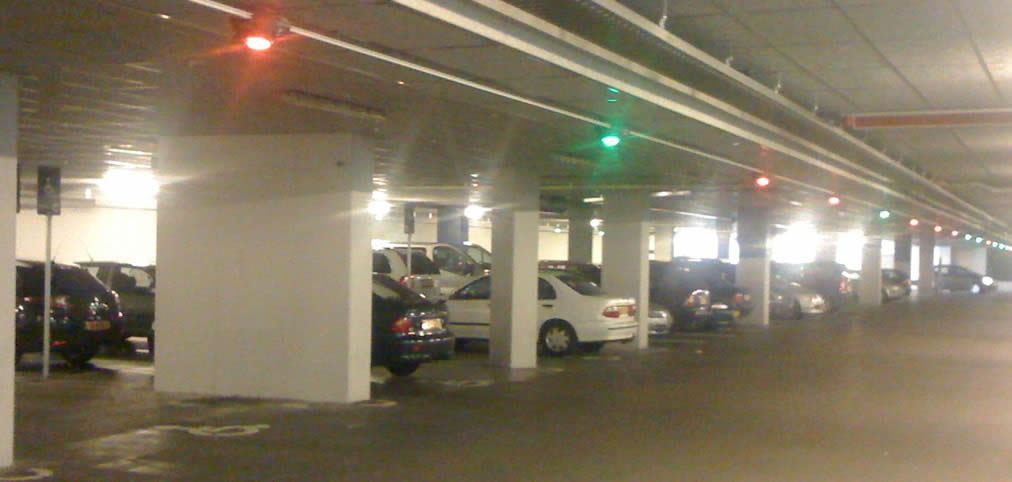KiwiNet News 27 February 2015
UK sensor developers interested in collaborating with NZ researchers and businesses on smart city projects
Hamilton, New Zealand, 27 February 2015
UK sensor developers interested in collaborating with local researchers, businesses, city planners and systems engineers on smart city projects will be in New Zealand next week. The British High Commission in New Zealand has teamed up with KiwiNet and Callaghan Innovation to host a Sensors in the Built Environment workshop in Wellington on 4 March to encourage collaborative research opportunities.

Steve Thompson, Science and Innovation Officer, British High Commission says, “There is a lot of great work going on in New Zealand on sensors, as there is in the UK, and we’re keen to connect key people in each area to come up with some new research ideas they can develop through collaboration and take to market.”
Seumas McCroskery, Innovation Manager, KiwiNet comments, “Emerging technologies in sensing, data processing and user interfaces are converging to create fabulous opportunities to understand the world around us better than ever before. This event is a great opportunity for New Zealand scientists and businesses to work together locally whilst also looking globally with the visiting UK representatives to push the frontiers of sensor innovation.”
The workshop will provide a platform to share the latest developments in practical systems for smart cities: what works, what doesn’t, and what systems are already in place and look for opportunities to build connections to initiate new solutions.
Dr Andrew Dawson, Network Manager of Sensing Technologies at Callaghan Innovation notes, “We’re keen to increase understanding about how sensing technologies can be used to solve business problems, or by local governments for infrastructure and environment monitoring, as well as, at a national level for security, health of the population, transport distribution, and understanding the behaviours of people in cities. By highlighting the research capability that exists both here and in the UK to a diverse mix of people we’ll encourage better alignment and collaboration.”
Key topics include sensors, feedback and control systems needed to support the essential infrastructure, systems and services of a city, including transport and mobility by land, water and air; water management; solid waste; energy systems; communication and civil emergency measures; neighbourhoods, weather, seismic activity; greenhouse gas emissions and the environment.
Thompson says many British organisations were keen to make contribution to help the Christchurch rebuild efforts following the earthquakes. But he says the applications are not just for Christchurch as any city can be refitted with sensors.
The delegation of UK applied researchers, with a range of research interest areas, include:
- Dr Alex Mason, School of Built Environment, Liverpool John Moores University, and a member of the Built Environment and Sustainable Technologies (BEST) Research Institute. Dr Mason’s research interests span civil engineering, facilities management, materials development and testing and the use of sensors in water monitoring, environmental monitoring, communications, medical and energy systems.
- Dr Olga Korostynska, Senior Lecturer in Advanced Sensor Technologies, School of Built Environment, Liverpool John Moores University (LJMU). Dr Korostynska is interested in establishing links with industry interested in pioneering the use of the electromagnetic sensing for real-time monitoring of water pollutants. As a lecturer in a Master level course on Structural and Earthquake Engineering, Dr Korostynska is also looking to establish a link with construction companies in designing and building earthquake resistant structures.
- Prof Ken Grattan, City University London. Prof Grattan's research interests lie in the use of fibre optic and optical systems for the measurement of a range of physical and chemical parameters.
- Joe Ryan, VRgo Ltd, a resident at the Pervasive Media Studio in Bristol UK. Mr Ryan has a background in game design and he is now developing a consumer device called VRgo that will be primarily used for movement within virtual reality. The custom made wireless sensor module and development platform will allow the device to work seamlessly with the most popular game engines. He is interested in connecting with creative technologists and commercial parties that have an interest in new ways of hands free movement in VR.
- Ian Short, Chief Executive, Institute for Sustainability, an independent charity established in 2009 to significantly accelerate the delivery of sustainable cities. The Institute works with a diverse range of partners in the UK and internationally to deliver innovative demonstration projects focused on systemic solutions for cities and neighbourhoods.
For further information please contact:
Sandra Lukey
Shine Group (PR for KiwiNet)
Cell: +64 21 2262 858
Email: sandra@shinegroup.co.nz
